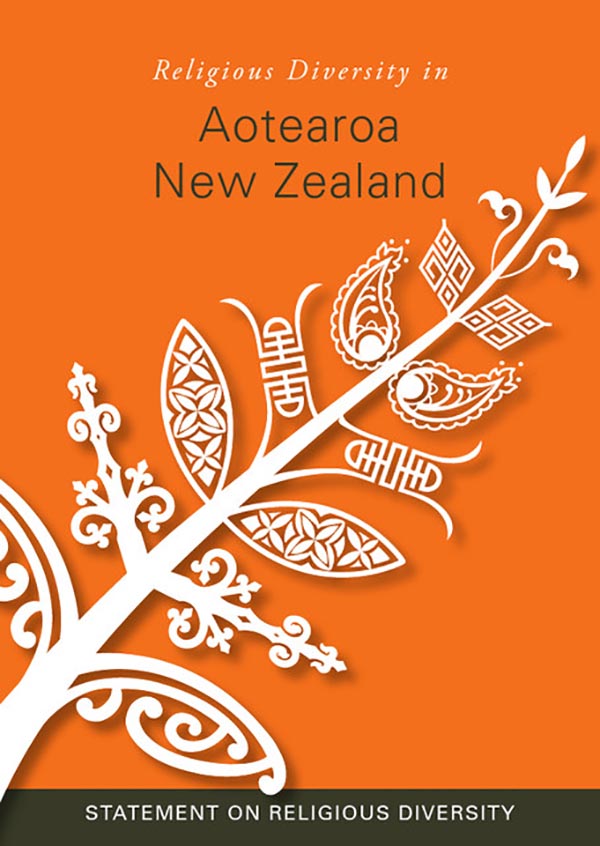Brian Tamaki, bishop of the Destiny Church network in New Zealand, has been agitating to have New Zealand recognised as a Christian country. He’s been responding to the Statement on Religious Diversity, an initiative to provide a framework for the recognition of New Zealand’s diverse faith communities and their harmonious interactions with each other, with government and with other groups in society, including those who have no faith.

The Statement was one of the topics for discussion at the Asia Pacific Interfaith Dialogue at Waitangi last month and is a project of the New Zealand Diversity Action Programme with the support of the Human Rights Commission, Victoria University, the Ministry of Social Development and the New Zealand National Commission for UNESCO.
Brian organised a peaceful protest at Waitangi, calling Helen Clark to recognise the Christian faith as the official religion of New Zealand. Destiny Churches have started a web site, www.christiannation.org.nz, initially in support of the protest march. Tamaki claimed that the Labour Government was pushing a secular humanist approach to religion, denying years of Christian heritage, and endangering the positive values that kept families together. Tamaki is concerned that if prayers in Parliament are not prayed in the name of Jesus Christ, the country’s values will be diluted.
‘It’s often said that religion has no business meddling in politics. Now we’ve got the State meddling in religion. Make no mistake – the proposed National Statement on Religious Diversity is a politically motivated document that would be incredibly dangerous in the hands of an anti-Christian Labour Government. I equate it to religious treason. So I will be at Waitangi to send a clear message to Government to honour our Christian heritage,’ Tamaki said in one of his press releases.
Here’s the heart of the Statement on Religious Diversity…
- THE STATE AND RELIGION. The State seeks to treat all faith communities and those who profess no religion equally before the law. New Zealand has no official or established religion.
- THE RIGHT TO RELIGION. New Zealand upholds the right to freedom of religion and belief and the right to freedom from discrimination on the grounds of religious or other belief.
- THE RIGHT TO SAFETY. Faith communities and their members have a right to safety and security.
- THE RIGHT OF FREEDOM OF EXPRESSION. The right to freedom of expression and freedom of the media are vital for democracy but should be exercised with responsibility.
- RECOGNITION AND ACCOMMODATION. Reasonable steps should be taken in educational and work environments and in the delivery of public services to recognise and accommodate diverse religious beliefs and practices.
- EDUCATION. Schools should teach an understanding of different religious and spiritual traditions in a manner that reflects the diversity of their national and local community.
- RELIGIOUS DIFFERENCES. Debate and disagreement about religious beliefs will occur but must be exercised within the rule of law and without resort to violence.
- COOPERATION AND UNDERSTANDING. Government and faith communities have a responsibility to build and maintain positive relationships with each other, and to promote mutual respect and understanding.
The statement was prepared by the Victoria University Religious Studies Programme and authored by Programme Director Professor Paul Morris. The statement was the subject of a national process of public consultation coordinated by the Human Rights Commission, and was endorsed by the National Interfaith Forum in Hamilton in February 2007 as a basis for ongoing public discussion. The whole Religious Diversity in New Zealand booklet can be downloaded as a pdf document from the Human Rights Commission web site.
So what do New Zealanders think about all this? A poll run by Research New Zealand, canvassing 501 people across New Zealand, found that 58 percent of people disagreed with making Christianity the official state religion. Those aged between 15 and 29 were most vehemently opposed, with more than seven out of ten people against the idea. 63 percent of men opposed the idea, compared with 54% of women. Two thirds of people support teaching schoolchildren about all the world’s religions.
501 people isn’t a lot of people on which to build a confident sense of national identity. However the result is no surprise, given New Zealand’s long history of secular education and resistance to naming an established church. The eight principles named above, however, have been developed in the wake of anti-Semitism, and more recently prejudice shown towards people of Muslim faith.
It seems to me that Christians need to learn how to relate to one another, those of other religions, and those with no religion, without any sense of privilege. That’s what being a secular nation is about. The same applies in predominantly Muslim nations such as Indonesia and Egypt. Allowing inclusive prayers in Parliament need not denigrate or downplay the Christian beliefs of churches.
